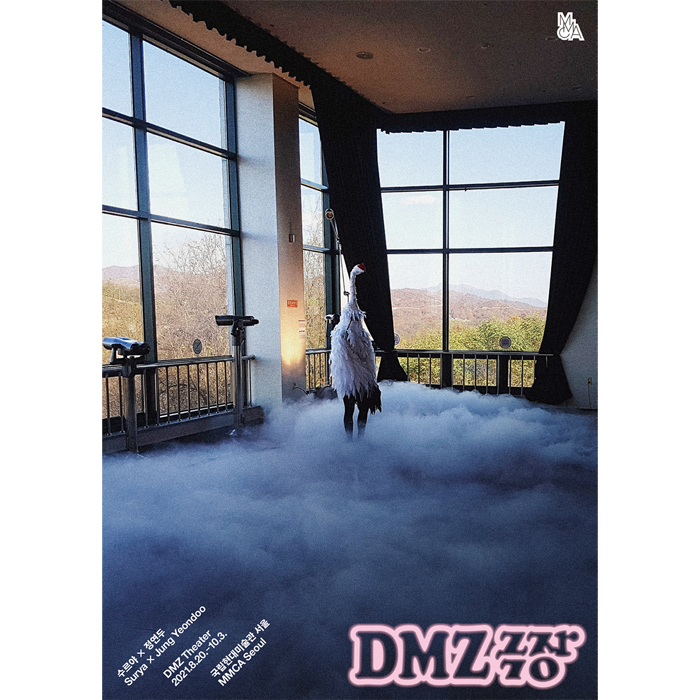
| Period| | 2021.08.20 - 2021.10.03 |
|---|---|
| Operating hours| | tue-sun 10:00 - 18:00 wed, sat night time open 10:00 - 21:00 |
| Space| | National Museum of Modern and Contemporary Art in Seoul/Seoul |
| Address| | 30, Samcheong-ro, Jongno-gu, Seoul, Republic of Korea |
| Closed| | January 1st, Lunar New Year's Day, Chuseok |
| Price| | Free |
| Phone| | 02-3701-9500 |
| Web site| | 홈페이지 바로가기 |
| Artist| |
수르야
|
정보수정요청



|
|
Exhibition Information
DMZ Theater is an interdisciplinary art project that imagines the 13 observatories located along the border of the Korean demilitarized zone(DMZ) as theaters and presents the narratives in the area as exhibitions and performances. Since 2017, artist Jung Yeondoo and director Surya have visited the 13 observatories over 50 times to take photographs. Based on these, photographs, they have collected, reconstructed, and extended accounts by soldiers, folktales about the names of places around the observatories, and stories about the Korean War and Korea’s subsequent division to develop an exhibition with installations and performances. The works in this project, such as Victory Theater, Dora Theater, and Odusan Unification Theater, are named after the 13 observatories, expressing the stories contained in them. The DMZ, which extends two kilometers to the north and south of the Military Demarcation Line, is not only a place that bears witness to Korea’s painful modern history, but also a “non-place” devoid of physical communication. In this regard, DMZ Theater is an interdisciplinary and performative alternative art practice that, through exhibitions, performances, and workshops, aims to flexibly extend the existing narratives of the DMZ in the both an ideological context, regarding the war and division, and an environmental context, as the area has become an ecological haven with plant and animal life thriving in the absence of humans. By exploring the undiscovered, abundant, and dynamic “micro-history” of the through individual accounts, folktales, and myths, rather than taking a “macro-history” approach that focuses on nation, ethnic groups, and ideology, DMZ Theater views the DMZ as a cultural creation area where reality and imagination intersect. Defamiliarizing mainstream stories and images of the DMZ, this project provides a pathway to liberation from the traumas that have long affected the Korean people. (source=MMCA KOREA)
